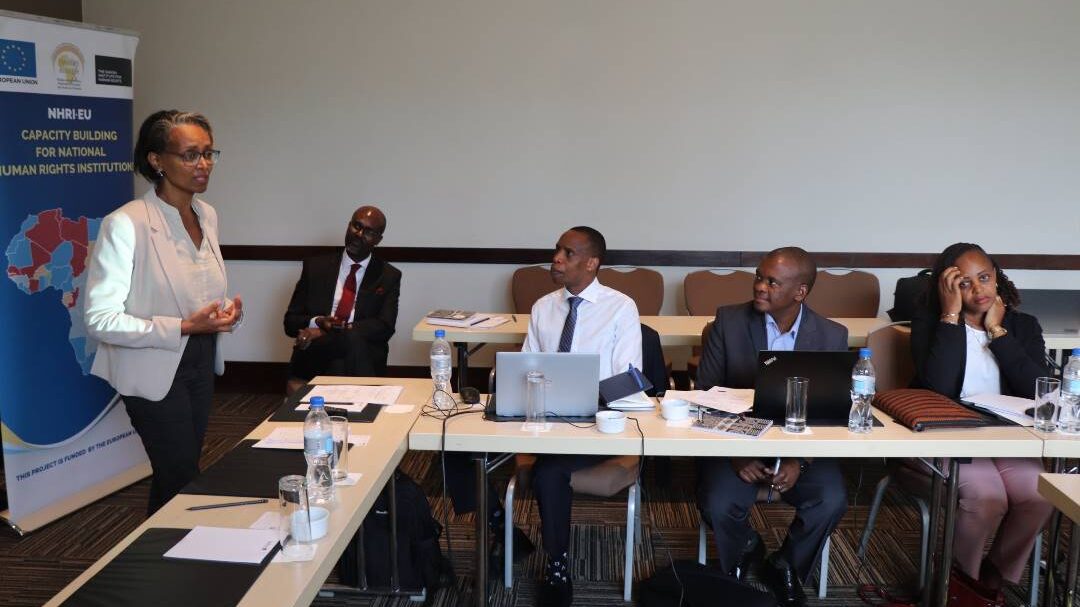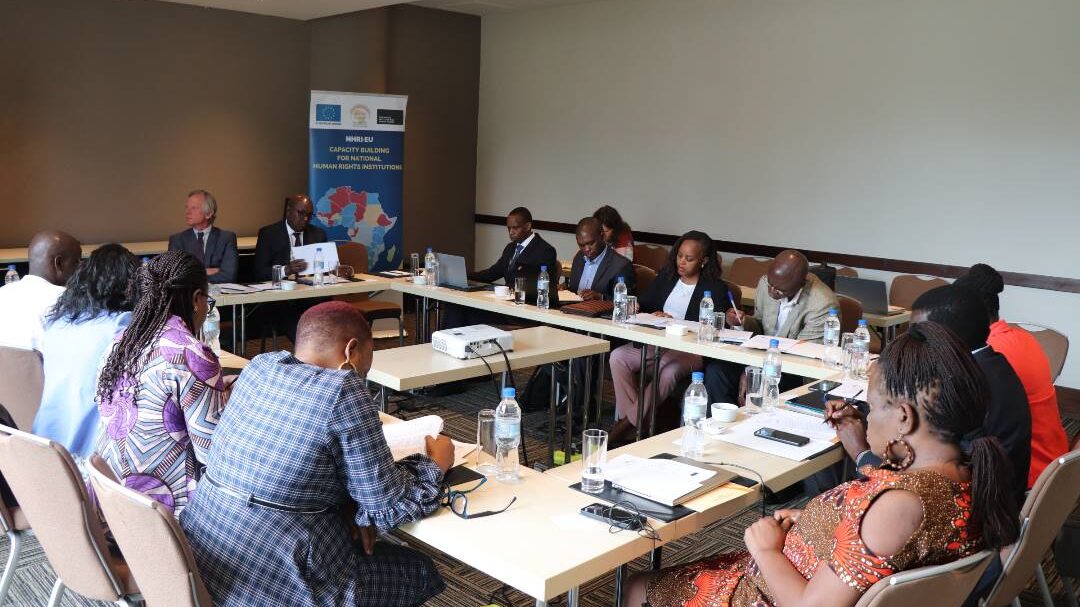The Ethiopian Human Rights Commission (EHRC) and the Network of African National Human Rights Institutions (NANHRI) co-hosted a capacity-building workshop on June 28–30, 2023, in Addis Ababa, Ethiopia. The workshop focused on the role of National Human Rights Institutions (NHRIs) in reviewing national protection systems that affect Human Rights Defenders. The event was attended by participants from over ten (10) African NHRIs as well as DefendDefenders, an NGO (Non-Governmental Organization) registered in Uganda that works for strengthening human rights defenders in Africa.
The workshop was designed to empower NHRIs to critically assess the effectiveness of protection systems for human rights defenders (HRDs) and to provide actionable recommendations that can lead to institutional changes and legal reforms. It also aimed to strengthen the supportive role of NHRIs in implementing these reforms through a variety of intervention mechanisms.

The participants of the workshop provided specific examples of the various attacks and forms of intimidation directed at human rights defenders in their respective countries. In addition, they conducted an in-depth review of their country’s national policy, legal, and regulatory frameworks on HRDs, shared their experiences, and discussed challenges encountered in their work. In light of the shrinking civic space for human rights defenders, it was emphasized that NHRIs have a critical role to play in promoting and protecting the rights of HRDs.
Rakeb Messele, the Deputy Chief Commissioner of EHRC, noted the importance of HRDs, including NHRIs, in protecting human rights. Thus, protecting HRDs protects our partners and key stakeholders and promotes freedom of Expression, association, and Assembly. The Deputy Chief Commissioner also pointed out that Ethiopia has made some progress in protecting HRDs by passing progressive laws after 2018, such as the new Organizations of Civil Societies Proclamation. It is good to have national legislation, but NHRIS must always stay vigilant in monitoring how it is being implemented, and it is important to look at subordinate laws such as regulations and directives. NHRIs should challenge the government and also advise them before they make prone decisions because amending (revising) laws takes time. Thus, it is better to do the monitoring prior to major decisions. NHRIs should also strengthen their partnerships and collaboration with CSOs to make them more visible. NHRIs should create awareness for authorities to make them more aware of HRDs.

During his remarks, Mr. Gilbert Sebihogo, the Executive Director of NANHRI, highlighted that the civic space in numerous African countries is narrowing and human rights defenders are facing detention and harassment. He emphasized that similar workshops are instrumental in enhancing the capacity of NHRIs to assess national protection systems and advocate for legal reforms.
Hassan Shire, Executive Director of DefendDefenders, emphasized the importance of the Marrakesh Declaration and the recent Accra Declaration in protecting human rights defenders (HRDs) in Africa. He also introduced the official establishment of the protection system for human rights defenders within the mandate of NHRIs.

Mr. Riccardo Mosca, Deputy Head of Delegation of the European Union (EU) to the African Union, acknowledged that human rights defenders are facing attacks in Africa and worldwide. He reaffirmed the EU’s support of human rights defenders and underlined the EU’s commitment to provide assistance.
Following the workshop, the participants had the chance to visit EHRC’s head office and were given an overview of the various departments and the Commission’s everyday activities.
